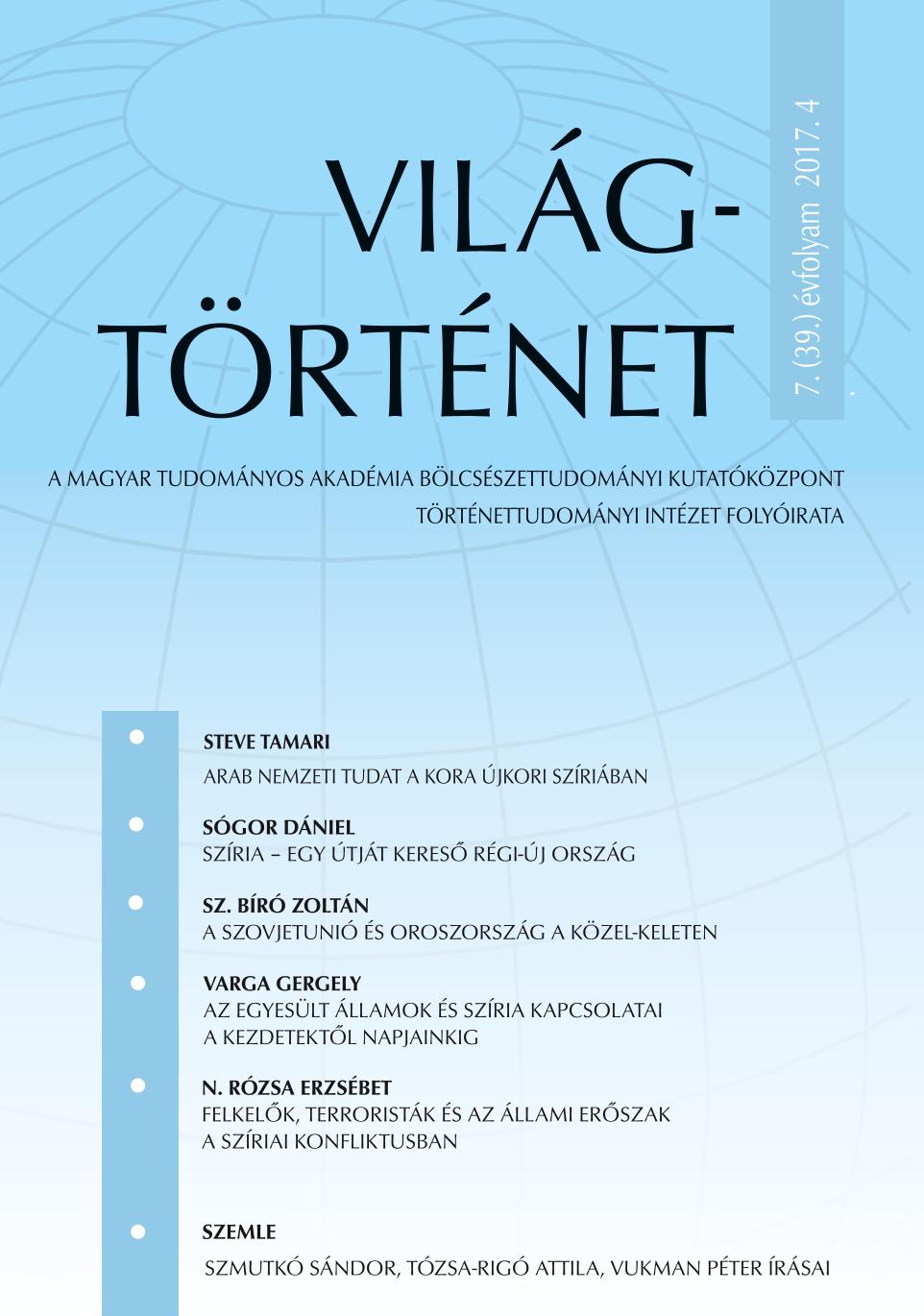A francia gyarmati uralom megrendülése a Közel-Keleten. Az 1925–1927-i szíriai felkelés
The Shock of the French Colonial Rule in the Middle East: The Great Syrian Revolt, 1925–1927
Author(s): Péter Ákos FerwagnerSubject(s): Interwar Period (1920 - 1939)
Published by: Magyar Tudományos Akadémia Bölcsészettudományi Kutatóközpont Történettudományi Intézet
Summary/Abstract: The nationalist insurrection broke out in 1925 was the most violent episode of the long struggle the Syrian people fought against the French mandatory power in the period between 1920 and 1946. In the middle of the 1920s this devastating uprising pointed out the dissatisfaction with the French rule and caused very serious problems for Paris. Among its causes one has to mention the grievances of the Arab nationalists in Syria and the dissatisfaction of the Druze tribal aristocracy with the methods of the French mandatory administration. The bloody uprising from the Druze Mountains spread to Damascus and other big cities (Hama, Aleppo). In August and September 1925, the French lost their battles against the Druze tribal warriors who made an alliance with the Damascus nationalist leaders. The aim was to expel the French administration and establish the independent Syrian nation-state. Because the insurgents broke into Damascus and caused serious security problems in the city, the capital was bombed on the order of chief commissioner Sarrail, causing enormous damage. The French gained reinforcement and eventually managed to defeat the uprising. This was facilitated by the fact that the alliance between the Druze tribes and the urban middle classes did not prove to be lasting. The last centres of armed resistance were only overcome in the summer of 1927. As a result of the uprising, the French were forced to introduce political concessions in their Middle East mandates.
Journal: Világtörténet
- Issue Year: 2017
- Issue No: 4
- Page Range: 545-573
- Page Count: 29
- Language: Hungarian

